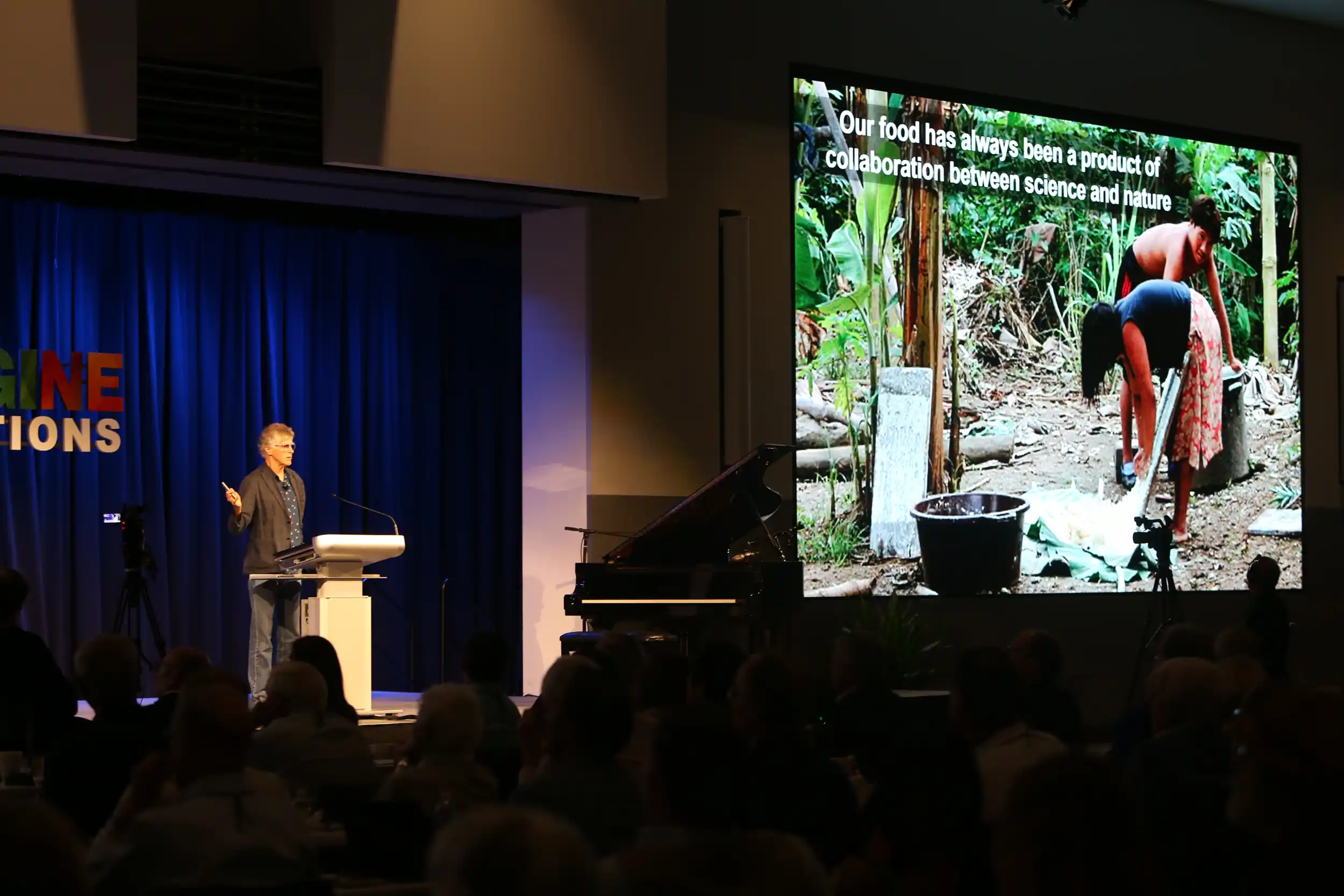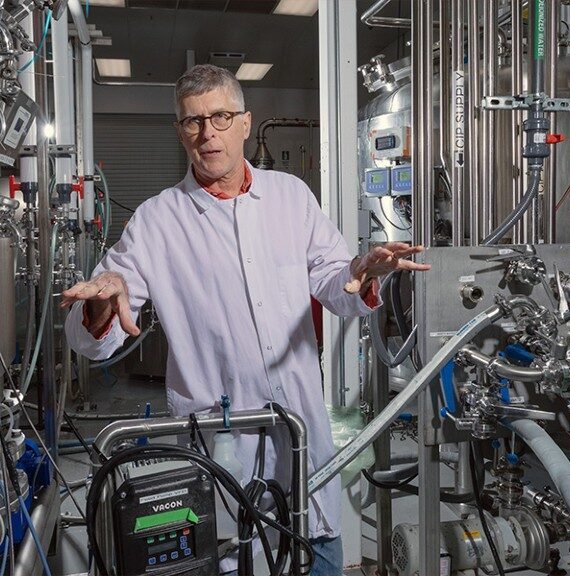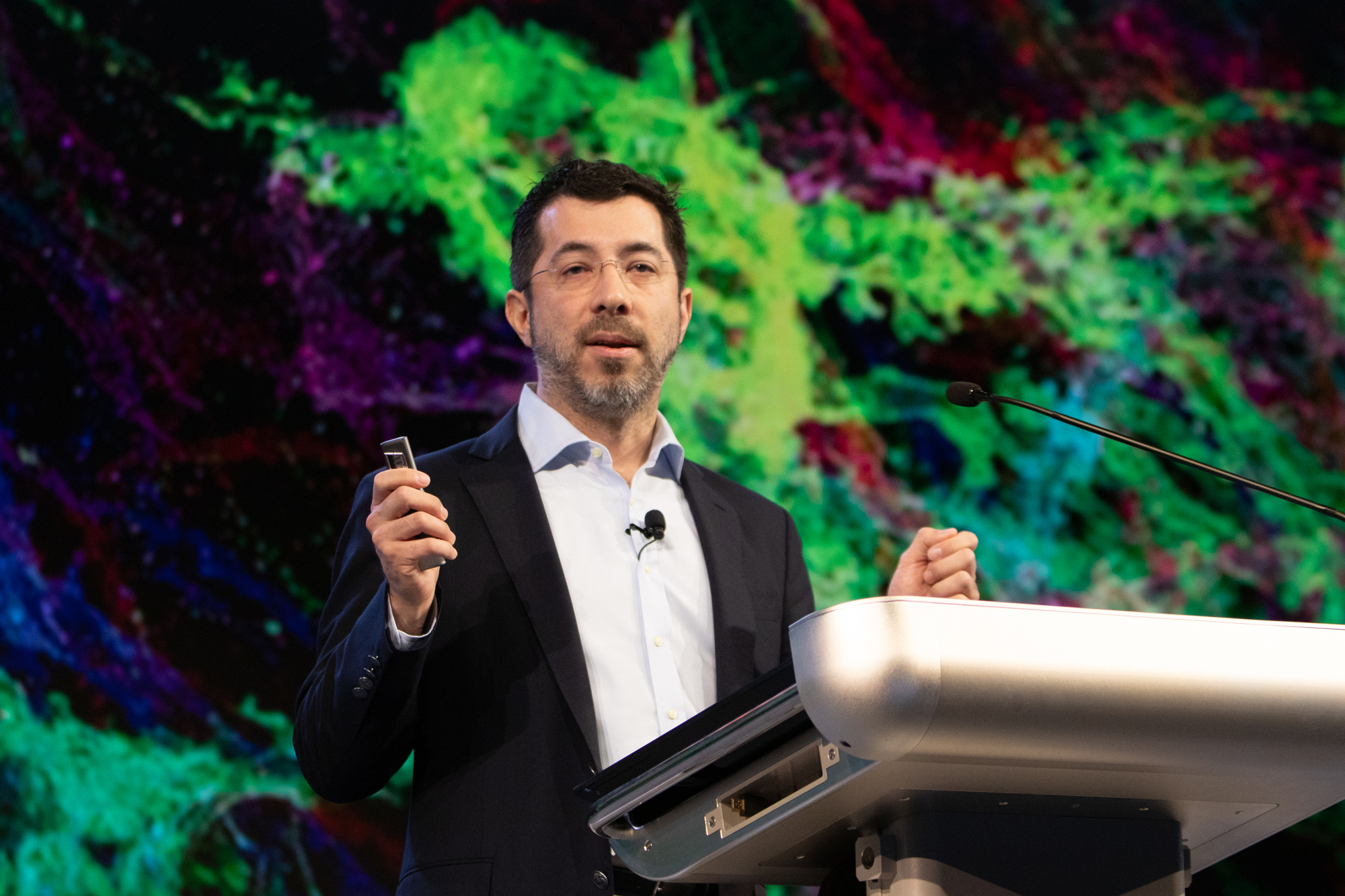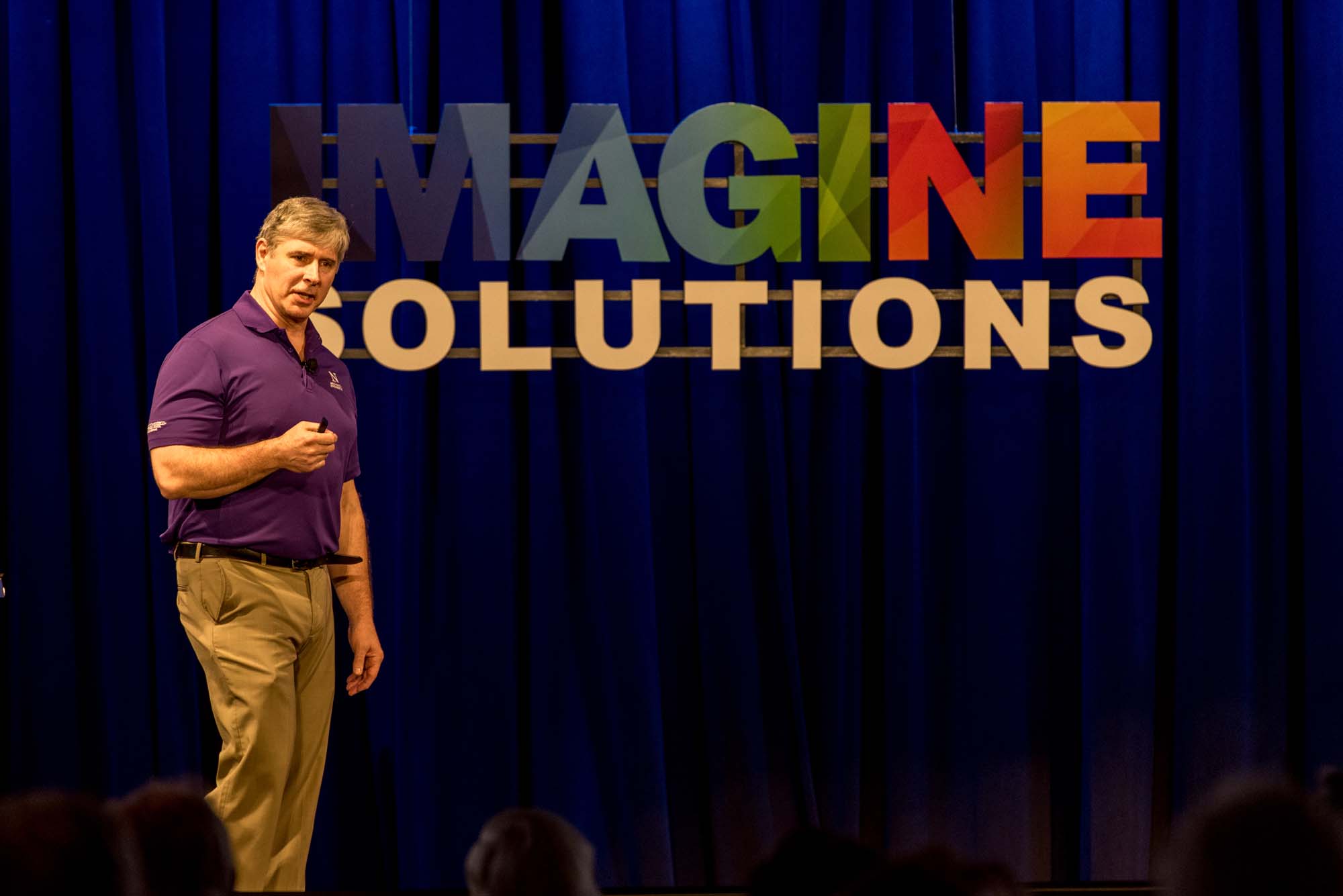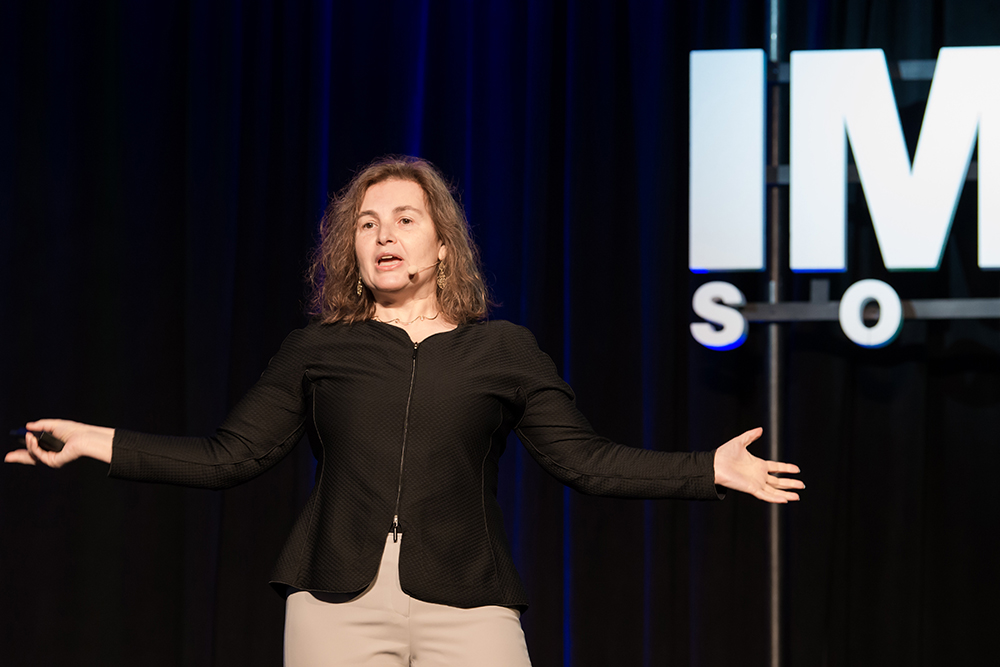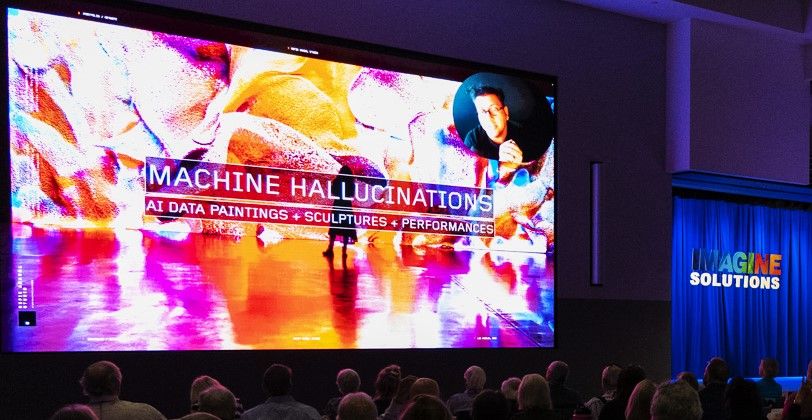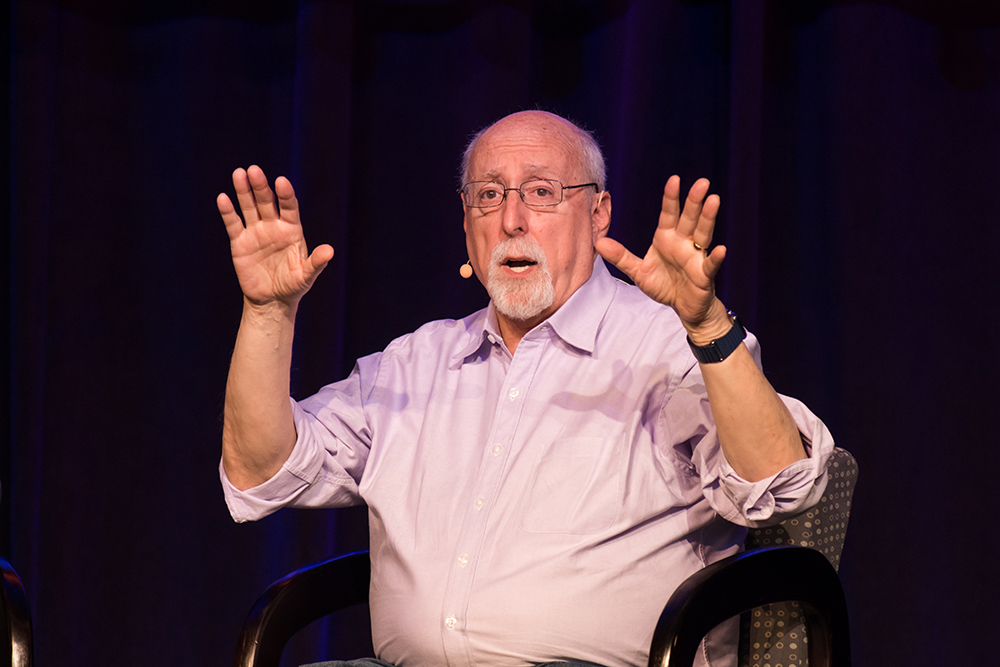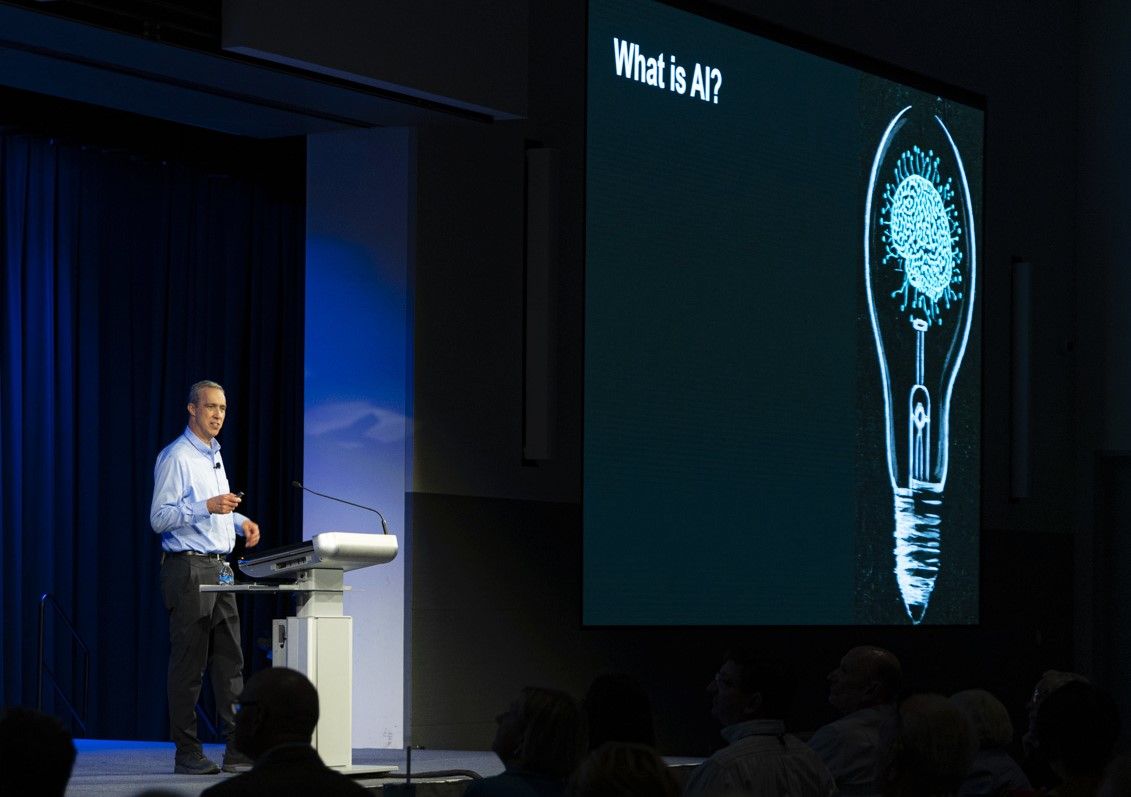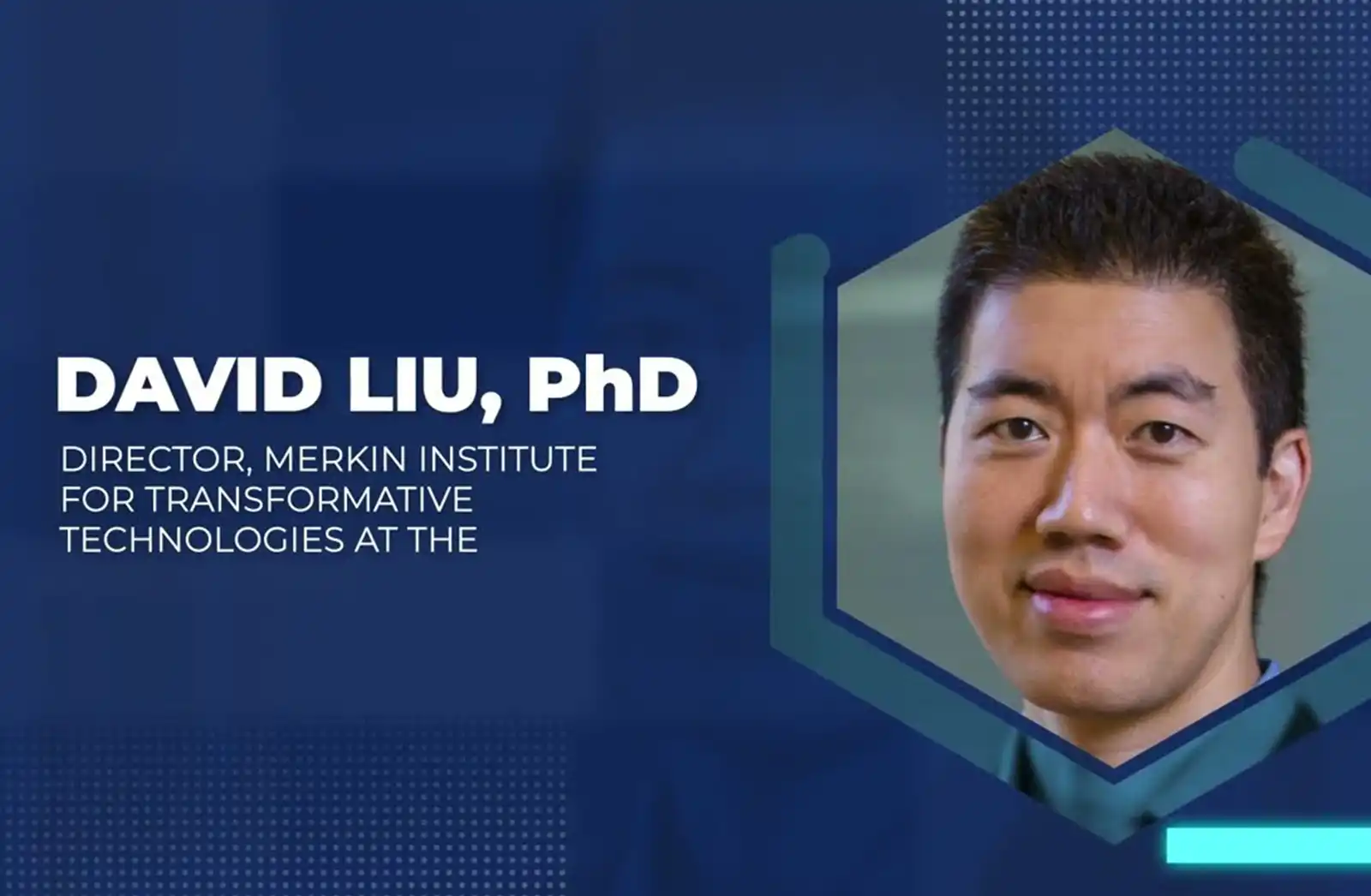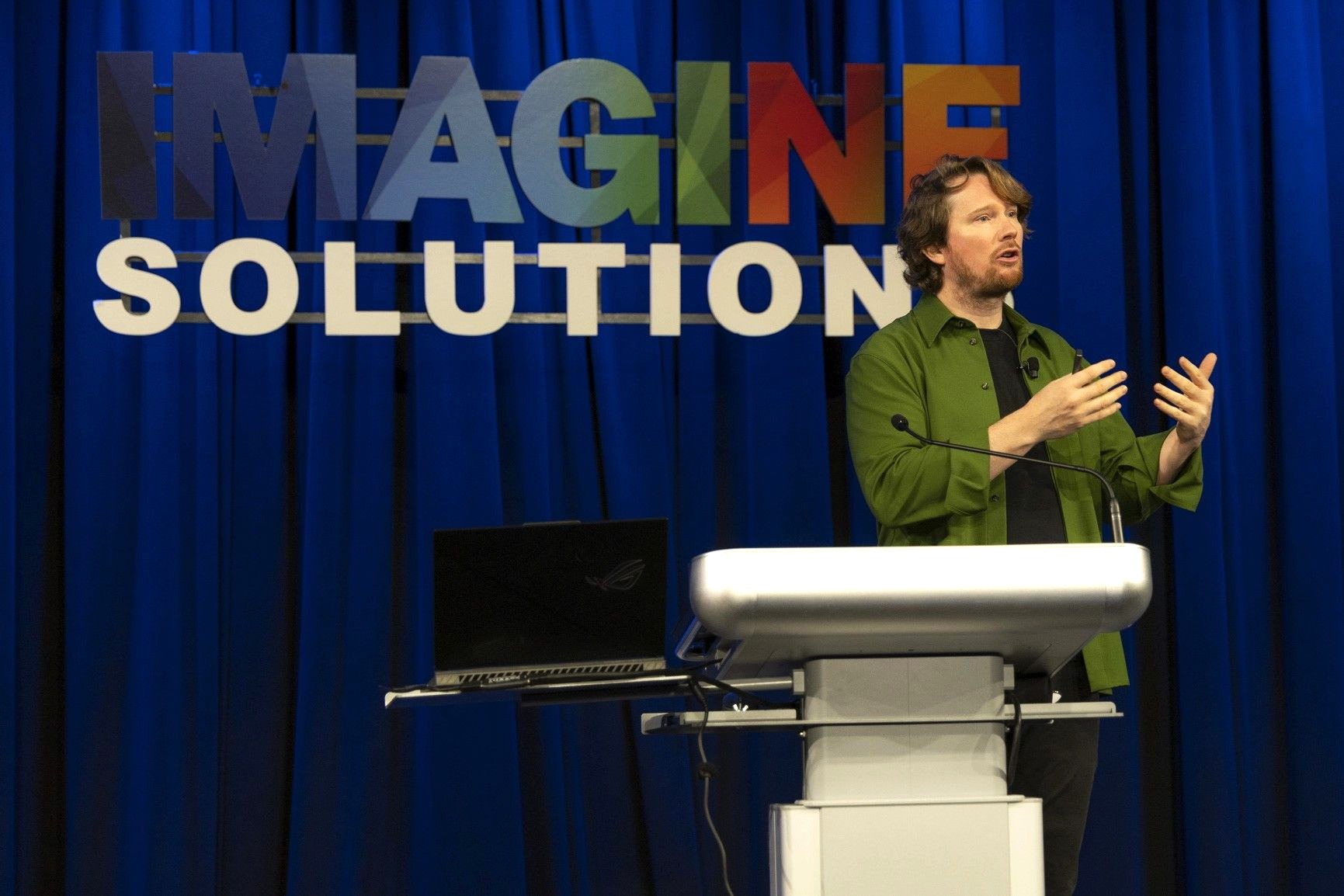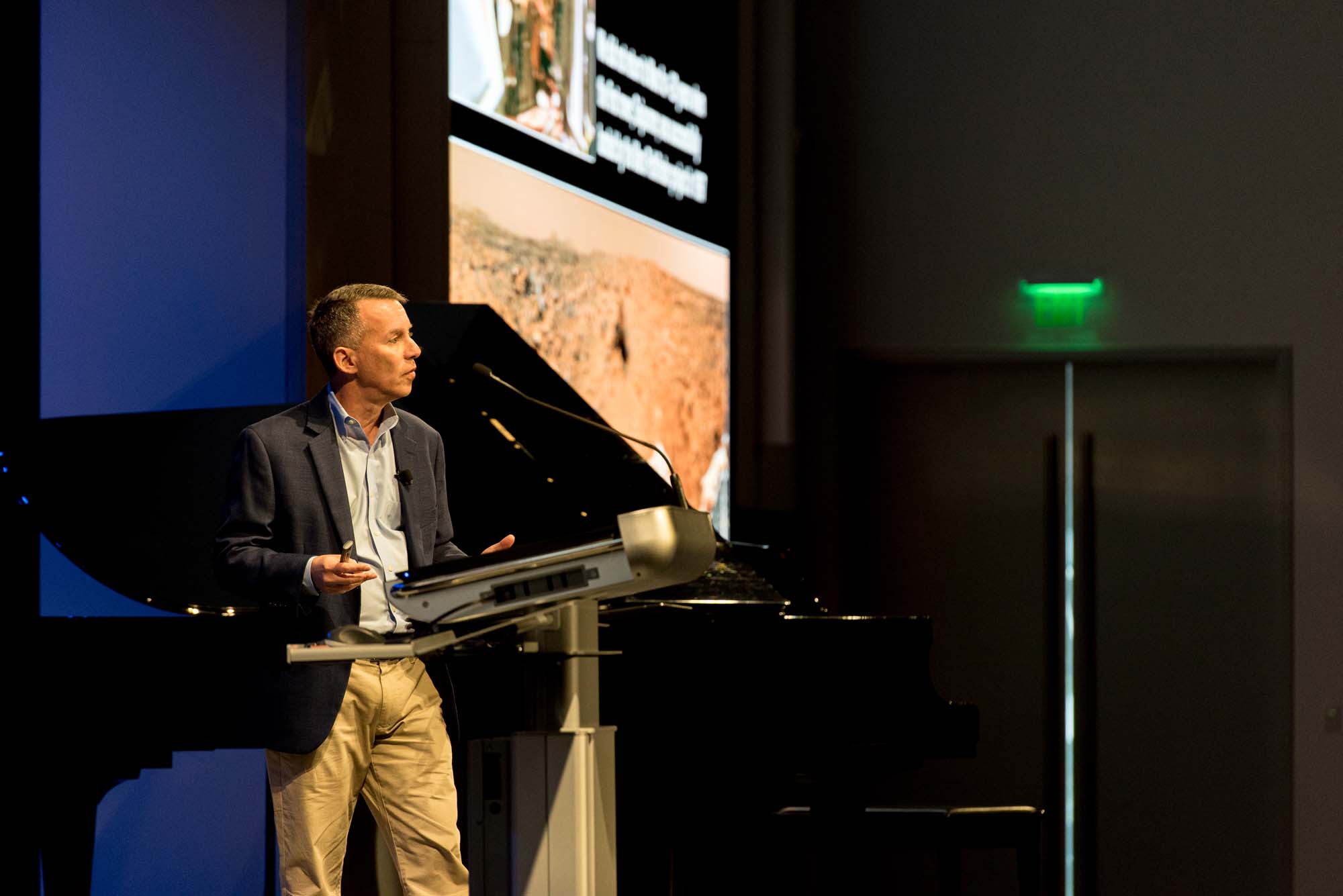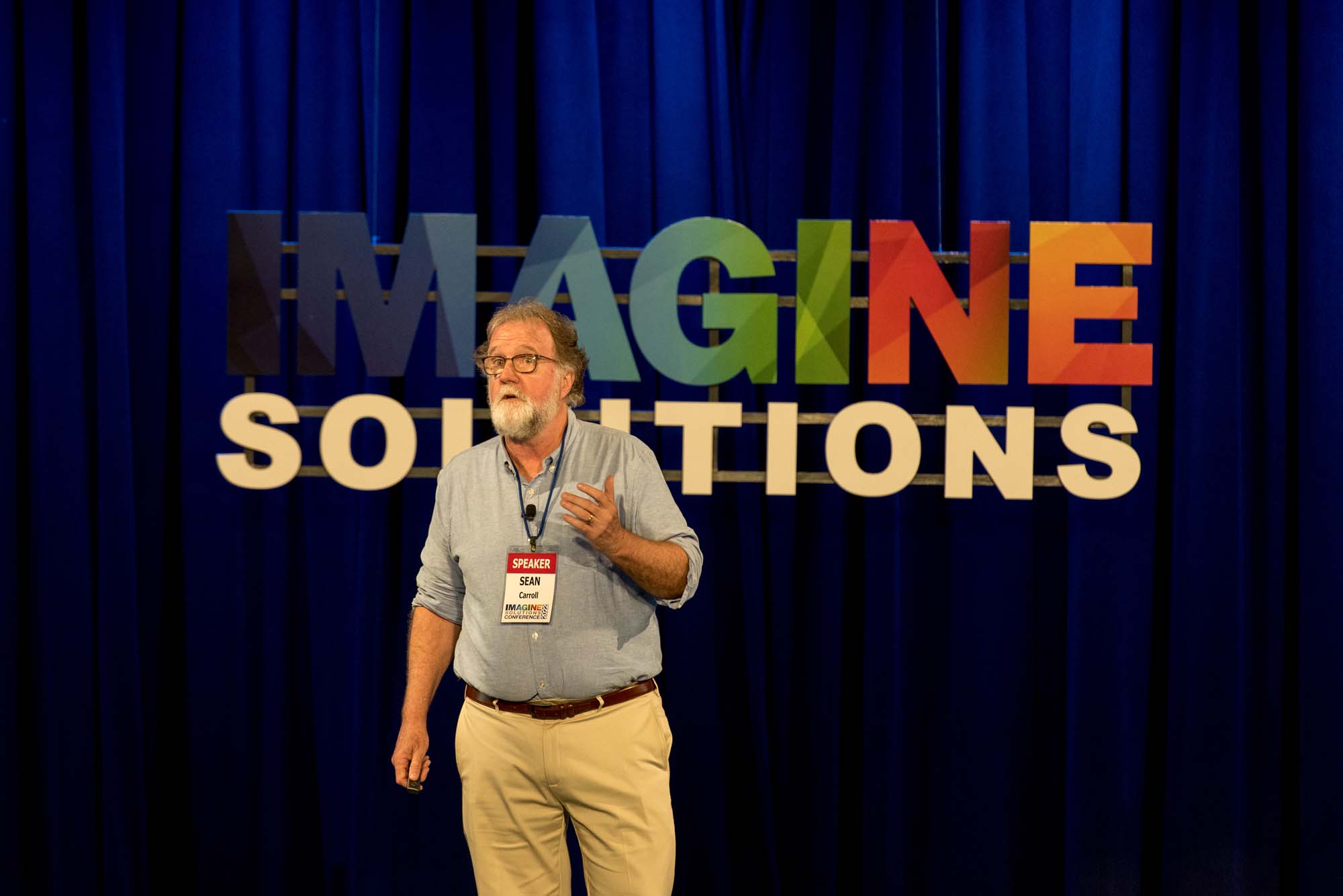Developing plant – based substitutes for meat products
00.00
foreign [Music] [Music] thanks for having me here um the animal agriculture which is the technology for producing food from animals is going to be essentially gone from the world within two decades and in the next 20 minutes or so I will trace my own experience of learning first why it must happen and then how it will happen for most of my adult life I was a
01.00
tenured professor at Stanford and um and it was the best job in the world I had great funding from Howard Used Medical Institute among others and my job I'm not kidding was to follow my curiosity wherever it took me um invent things discover things and and Mentor amazing students so if that's not a dream job I don't know what is um about 12 years ago on a sabbatical I set myself the challenge to figure out what's the what's the most important problem in the world that I can contribute to solving and um and I'll take you through uh how I came to the answer to that so most of you probably already know that Nature's in trouble around the world um but I think many people don't realize um how how bad it's it's getting and how
02.03
fast it's it's um deteriorating this is a chart that was taken from the publication by a Consortium of scientists that started more than 50 years ago and basically they start out by create identifying a set of a little over 5 000 mammal bird Repton amphibian species and then effectively taking a population census of those species periodically over the next 50 years and what they reported recently is that across this whole and those species were intended to kind of sample the diversity of vertebrate life on Earth and what they reported recently is that on average those populations today are less than a third but they were 50 years ago when I was a kid and that Trend shows no no sign of stopping
03.00
and more recently there have been a number of studies that have reported a similar thing for insects this is this is one of them the New York Times called this the insect apocalypse basically if anything around the world uh flying insect populations seem to be crashing even more rapidly than uh vertebrate populations and that's a great thing if all you care about is a cleaner windshield but um it's a terrible thing when you consider that eighty percent of all the flowering plants on Earth depend on insects for pollination for reproduction basically and 70 of crops do as well so this decline of animal biodiversity is you can think of it as a leading indicator of what's going to happen with whole ecosystems and with plant biodiversity because the animal species that are critical to keeping those ecosystems going propagating them
04.01
enabling them to adapt when they disappear that robustness goes with it and and this is what's coming okay what does this have to do with animal agriculture well basically the shorter answer is the overwhelmingly primary driver of the global class of biodiversity is animal agriculture at least on land this is just one little snapshot of give you an idea of how insane it's gotten right now there are 1.7 billion cows living on Earth those cows they're total mass of those cows exceeds by more than a factor of 10 the combined mass of every remaining terrestrial mammal bird reptile and amphibian on Earth we've essentially almost entirely replaced nature with cows if you see an animal anywhere in the world most likely it's a cow and the the the
05.02
mean area where animal Agriculture and biodiversity Collide is land use so the international livestock Research Institute Better Lives through livestock as our motto reported a number of years ago that the land footprint of animal agriculture covers uh 45 of the ice-free surface of Earth that's an area that's bigger than the total area of North America South America Europe and Australia combined actively being used raising animals for food and to make that possible the native ecosystems uh forests and shrub lands and grasslands were cleared for grazing and uh and feed crops for livestock for comparison all the crops that are grown for food that humans directly eat fit on about eight
06.02
percent of Earth's land area and every city and suburb on Earth sits on less than 1.5 percent of Earth's land area so more than 80 percent of the entire land footprint of Humanity on nature is animal agriculture okay um quick segue on climate um as probably most of you know we're on a pretty bad trajectory uh um with respect to climate and Global heating we're way off track relative to the commitments that were set in Paris a decade ago and at this point the only way that we're going to be able to avoid disaster from Global heating is by unlocking negative Emissions on an enormous scale okay that's all been the bad news now here's the good news um the thing that initially got me going
07.01
was the realization that's that sort of Illustrated in this graph and this graph was taken from a paper that I published with a colleague of mine at Berkeley Mike Eisen last year and basically what it shows is at the top the the solid line represents the trajectory so the y-axis is basically the amount of heat that's being excess heat that's being delivered to Earth and the the solid line represents the trajectory we're on today the dashed line represents the trajectory we we could be on if we could phase out animal agriculture over the next 15 years suspend disbelief and this was based on uh just using data from authoritative sources like ipcc and NASA and NOAA and and the U.N food and Agriculture and organization and and and just modeling it out I'll quickly take you through how it's accomplished um the three different color sectors
08.00
represent the three major ways in which um phasing ioni agriculture unlocks massive negative emissions the green sector represents biomass recovery on the land from which biomass and ecosystems have been cleared to make room for uh um for animal Agriculture and the amount of carbon that was released into that process is equivalent to about 22 years worth of fossil fuel emissions at the current rate 22 years worth of this year's fossil fuel emissions um unlike fossil fuel emissions though the emissions from uh biomass from clearing biomass are completely reversible using the most mature carbon capture technology on Earth optimize over three billion years of evolution and that's photosynthesis which turns carbon dioxide back into plant biomass um the other two colors represent methane and nitrous oxide which are major greenhouse gases
09.00
for which animal agriculture is one of or the most uh uh the the major source and the thing about those gases unlike carbon dioxide is that they are chemically unstable they Decay spontaneously which basically means that unlike CO2 once you pump into the atmosphere it's there pretty much for thousands of years unless you can pull it out methane and nitrous oxide Decay spontaneously so once you stop those emissions you get Negative emissions right away and that's how um uh phasing out animal agriculture can accomplish something that no one had considered possible it's quite amazing that within a a little over a decade it would take us to a 30-year period of net zero emissions where the negative emissions from that phase out uh actually slightly more than counterbalance all the ongoing emissions from all other sources and through the end of the century these negative emissions would offset more than half of
10.01
all the projected greenhouse gas emissions assuming we stay on our current trajectory which let's hope not um okay but what about um what about diet what about nutrition um despite the Relentless propaganda from the slaughter cartel trying to convince people that there are essential nutrients that you can only get from from meat or animal Foods all the scientific literature says that's bunk and um this is just a paper from 12 years ago but basically the the consensus and all the evidence says that there are no essential nutrients that you can only get from animal products and in fact a diet consisting entirely of plant products is healthy at every stage of life from infancy through old age including pregnancy and if anything healthier than a standard omnivorous
11.00
diet so there's that and then you might wonder okay what about global food security don't how are we going to meet the world's nutritional needs you know without animals well it turns out that animal agriculture is a negative in terms of nutritional productivity the crops currently grown on earth contain more calories more protein and more of every essential amino acid and micronutrient than all the meat um uh produced globally in fact more than enough to meet all the nutritional needs not just of the 8 billion people who currently live on Earth by the 10 billion people that that we expect to be on earth in uh 2050. just this year's plant crops and in fact this year's Global soybean crop interesting statistic Canadians two and a half times as much high quality protein as all the meat produced globally and that crop alone has more protein and more of every essential amino acid than required to meet the protein needs of everyone on
12.00
Earth today okay well this this convinced me okay this is the problem that I need to work on we need to figure out a way to phase out animal agriculture ASAP and um and it's a hard problem it's it's like okay now we're at the stage of we have to imagine Solutions so to speak if I can use that term and um there are some things that we can pretty much rule out so we're not going to solve the problem by trying to persuade people to change their diets okay more than you know the vast majority of the world's population uh um considers meat not just an essential source of nutrition but one of the major sources of pleasure in their daily life so don't waste your time trying to tell them to stop and if uh and governments aren't going to be able to solve this problem by regulation because any government that tries to tell people what they can can't eat or Farmers what they can can't grow is going to be out of office the next day but fortunately Innovation can solve this problem and
13.00
the good thing about it is that fundamentally it's a technology problem the problem isn't that people love to eat meat the problem is we're making it the wrong way we're using the wrong technology to produce it so you know uh for many thousands of years we've relied for all kinds of uh Technologies basically all kinds of applications the core technology has been animals for power Transportation even for mobile Communications you know the state of the art from 600 BC until after World War one was carrier pigeons okay but those animals became obsolete as a technology but in the food system we haven't gotten there yet but the cow is a Sitting Duck for better technology it's incredibly uh low performing by any measure including economics and any measure of efficiency
14.00
and so forth so um so that's how we need to approach solving it the um science has been has has had a central role in our food System since prehistoric times pretty much all the foods that that you recognize today were discovered through a process of thousands of years of scientific research basically exploring and testing and experimenting from thousands of plant and animal and fungal sources of potential nutrition to figure out which ones are safe to eat which ones have good nutrition which ones are are palatable and then figure out how to process them to make them um you know optimally palatable and and healthy as Foods um this illustration is two indigenous amazonians preparing cassava and the story of cassava is that 8 000 years ago actually people in the
15.01
Amazon uh somehow discovered that this root which is deadly toxic um uh if eaten in its native state basically it contains lethal levels of cyanide that if you go through this process of mushing it into small pieces extensively washing it with water and then cooking it it becomes a great source of calories and nutrition and and and highly palatable and in fact this is one of those staple crops worldwide one of the major sources of calories now okay well that process of of um of science adapting the food system to changing demands and changing conditions and changing needs is still ongoing and so when I decided to take on this problem basically I founded a company called impossible Foods unfortunately it was easy to get investors to invest in it
16.00
because if you say it doesn't matter all the stuff about the science if you say basically we're going to replace a two trillion dollar Global industry they reach for their checkbooks so what we did starting out was first we assembled the most important thing was reassemble the most talented motivated Innovative group of scientists who ever worked on on food and and this is that amazing group of people it's Halloween um then they set out to understand the molecular mechanism they studied meat basically the way that in my past life I would study a disease understand the molecular mechanism so you can be very deliberate in figuring out how to solve it they studied the molecular mechanisms particularly of of the sensory experiences made from animals then figure out how to recreate that experience without using animals using sustainable scalable ingredients from plants or microbes and then make it better than the animal version which you have to do if you're going to replace the income in technology in the marketplace okay
17.02
um so this is just one example of the work that went into this obviously there's a lot more than this but one of the obvious questions is and that we didn't know the answer to when we started out why does meat taste like meat why is it that you can immediately recognize meat any kind of meat as not being a vegetable not from a plant uh when you taste it why is it you know when you cook broccoli it gets mushy and and warm and when you cook meat you get this explosion of flavor and Aroma that you never get from a cooking plant well as a biochemist to me this sounded like there's probably a catalyst involved and there was a very strong Prime candidate which is a molecule called heme heme is the molecule that carries oxygen in your blood it um it's what makes your blood red it's what makes meat red it what gives your cheeks their Rosy Glow um so it's you see it every day but what's not as widely known as it's one
18.00
of the best catalysts in nature making chemical reactions happen that wouldn't otherwise so if you take a solution of the simple nutrients that you can find in every cell including plant cells and you make a broth of that and you cook it what do you get you get something kind of black you get something mildly Savory it's sort of like weak miso soup or vegetable broth but throw in heme into that mix and Magic happens you get an explosion of of meaty flavors and Aromas from the same simple nutrients that otherwise are just like miso soup and so that was one important Discovery Hema is sort of the magic ingredient that makes meat taste like meat and not like plants there was obviously a lot more stuff we needed to figure out we need to figure out how to scale the heme production we needed to to figure out about texture and juiciness and mouth feel and and
19.00
supply chain and stuff like that but anyway at the end of that or well at some point we had to say okay well none of this matters if if it if a meat consumer isn't going to choose over the Animal product because that's that's the whole point so let's see how that went so the first product that we produced was basically raw ground beef made from plants and one of the consumer tests we did was called an in-home use test we give give it to a bunch of mainstream meat consumers and we ask them to use it all the ways they would use ground beef ordinarily and then ask them what they thought of it and two-thirds of these mainstream meat consumers rated it as good or better than ground beef from a cow that they've been using all their lives the nutrition is better lower calorie lower fat zero cholesterol same protein higher iron et cetera Etc and it's vastly Superior in terms of environmental impact which consumers don't really care about but but deliciousness is the main thing that
20.00
matters that's why we focused on it and nutrition okay what about pork the most popular meat on Earth the pork that we developed in a blind taste test that was carried out in Hong Kong where pork is the dominant meat with meat consumers the plant the pork made from plants in a wine taste test was was preferred by a decisive majority of those Hong Kong meat eaters and the nutrition is no contest 37 lower calories lower saturated fat no cholesterol et cetera et cetera et cetera okay um same deal with chicken chicken made from plants and a blind taste test with thousands of of mainstream meat consumers 70 percent of them uh preferred it on taste alone over the best-selling food service and Retail chicken nuggets and again the nutritional profile is superior 40 less saturated fat less sodium and so forth
21.00
okay but that's just like data what about anecdotes okay so let's ask this guy Glenn Beck who's a uh notorious for some people right wing radio personality and author who's also uh has a cattle ranch in Texas so what does he think of it this is a a a blind taste test prank played on him by his producer we have an A and B taste test one is a real Burger one is an impossible Burger uh you know can you tell the difference so a definitely tastes like me all right so now I'm going to try b b is a fake Burger I agree B is the real Burger a is The Impossible burger that is insane that's amazing shocked that both of you went with that is a that's wrong that's wrong to do that to me it's not really crazy I could go vegan you're an anti vegan stuff where
22.01
we both hate vegetables and for that to fool and I'm a Rancher okay so um so here's the deal so we're we're at the cusp of a meat Revolution everything in the past that's that's intended to be a substitute for meat has been a really sad imitation that no meat lover would take seriously um but now that now that a scientific approach is being taken to us and since impossible is founded there are now dozens and dozens of new startups that are taking a scientific approach to to replacing animals in the food system and so forth and the technology that uh We've developed now it's getting better every day more delicious healthier more sustainable lower cost and so forth and that's what happens with with new technology um you might say well how could this possibly happen in two decades though that seems absurd well actually that happens all the time a good recent example is the mobile phone the I mean the digital camera the the first digital
23.00
camera costs a thousand bucks it held eight pictures and there were three hundred thousand pixels okay they were it was terrible um eight years later Kodak was bankrupt and the only place that you could find a film camera anymore is an antique store okay so when a technology comes along that does a better job of serving what consumers want it can replace a dominant technology fast okay last thing and I'll be quick um what about the ranchers and Farmers isn't this going to be a disaster for them actually no in fact I think it's a it could be a a boon for them and and they could be our best allies actually in accelerating this and here's why look at Beef farmers and ranchers okay according to the USDA sensitive agriculture the average profit per acre from beef ranching was seven dollars per acre per year without subsidies it's a negative number okay at a carbon price of fifty dollars a ton so now there are carbon markets they're still immature but but they're getting more and more mature and the prices are
24.00
going up steadily and um the World Bank and IMF are predicting predicting that the the um price of a carbon capture of a ton of of CO2 equivalent um will be 100 by 2030. well at fifty dollars uh a ton of carbon capture you can actually using satellite data and stuff like that estimate the carbon capture potential high resolution of land the US that's what this map is um and um the average acre of land that's used for cattle in the U.S could earn thirty dollars per acre per year for the next hundred years um by capturing carbon by restoring the native ecosystem and and making profit from carbon credits and that would also um be the critical thing for reversing the collapse of global biodiversity so I think that this is going to actually ironically be another driver of of the demise of animal agriculture the farmers
25.00
and ranchers okay um so that's why I believe that animal agriculture is going to be gone in 20 years happy to debate that with anyone later I'm sure there'll be plenty of Skeptics um and the world will be better for your kids and grandkids and future generations and you'll still have meat [Music] foreign [Music]

